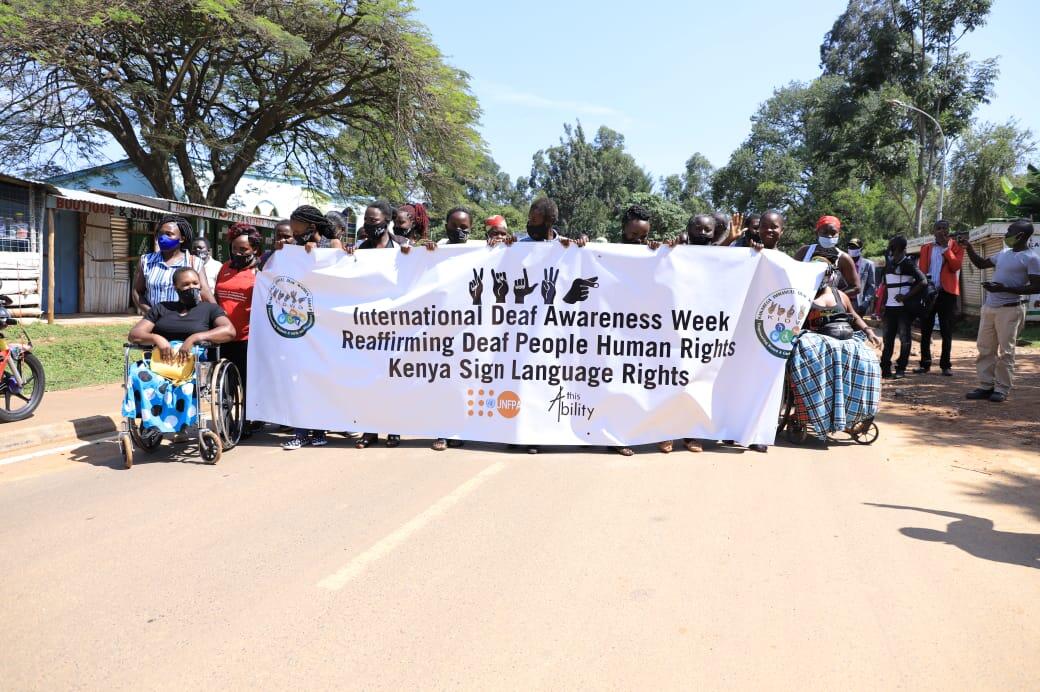Like every emergency does, the Covid-19 Pandemic has had a disproportionate and larger negative impact on vulnerable communities. The pandemic has affected people of all categories, but persons with disabilities have been hardest hit.
In addressing challenges faced by persons with disabilities during these difficult times, UNFPA Representative, Dr. Ademola Olajide and This- Ability Trust Managing Trustee, Lizzie Kiama, set out to Kisumu and Kakamega counties to assess the impact of Covid-19 on the community and identify feasible mitigating measures.
The team interacted with women and girls with disabilities, the County Government leadership and disability focal points to explore the impact of Covid-19 on access to sexual and reproductive health information and services. The main challenges, according to the women, are stigma, discrimination
and insufficient capacity by health personnel to attend to women living with disabilities.
“Physical distancing is nearly impossible for many who rely on caregivers. We need assistance from people to get dressed, move about and even wash hands in public spaces to keep COVID19 away,” explained Benter Bella, the Chairperson of the Women with Disabilities Organisation.
A visit to Nyalenda Medical Centre confirmed lack of sufficient disability friendly infrastructure like beds, sign language interpretation, ramps, bathrooms and toilets. The team was told that there has been a drop in the number of visits since the COVID-19 pandemic hit the country.
UNFPA committed to work closely with the Kisumu County Government and This-Ability Trust to ensure improvement of service provision to women and girls with disabilities. Priority will be given to ensuring
improved infrastructure in a pilot medical facility and training of the medical personnel to reduce stigma, and improve communication with people with disability.
UNFPA donated assorted COVID-19 PPE kits to the Kisumu Government through the Kenya Red Cross. The donation was received by the Kisumu County Deputy Governor, Dr. Matthew Owili, and the County Executive Committee Members for Health, Prof. Boaz Nyunya.
The County Governor who also chairs the Council of Governors, H.E. Wycliffe Oparanya, received the team in Kakamega County. Governor Oparanya explained the milestones his government has made in improving access to medical services especially for persons with disabilities. He acknowledged existing gaps in access infrastructure, data collection, as
well as medical personnel training in sign language interpretation and braille, which he attributed to budgetary constraints. Kakamega County is in the final stages of developing a Disability Bill.
The UNFPA will work in partnership with This-Ability Trust to support infrastructure improvement, digital data collection on women with disabilities, and training of health personnel. UNFPA Representative, Dr. Ademola Olajide noted that overall, UNFPA will aim to strengthen the health system’s response to sexual and reproductive health needs of women with disabilities through robust partnerships with counties and implementing partners such as This-Ability.
UNFPA donated dignity kits to women and girls with disabilities in Kakamega and Kisumu counties during the mission.


